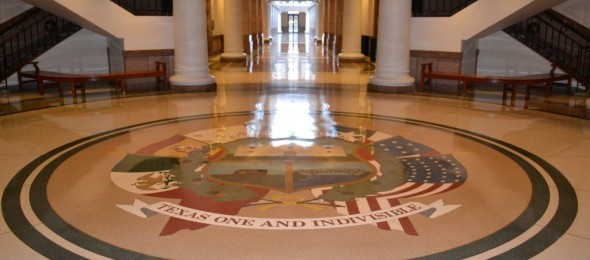In June, the Supreme Court of Texas denied a company’s petition for review that was filed after its motion to vacate an arbitral award of $3 million in legal fees issued to the company’s former law firm was denied. Now, the patent holding company has asked the high court to reconsider. In Parallel Networks, Inc. v. Jenner & Block, LLP, No. 16-0080, Jenner & Block represented Parallel Networks on a contingency fee basis in an intellectual property lawsuit that was filed against Oracle. The parties’ representation agreement stated any disputes related to attorney fees would be subject to arbitration. The law firm apparently filed an unsuccessful motion for summary judgment before withdrawing from representation of Parallel Networks.
Later, Parallel Networks settled the disagreement with Oracle for about $20 million upon the advice of the company’s new counsel. After the settlement award was reached, Jenner & Block sought more than $10 million in attorney fees from Parallel Networks. Parallel refused to pay the sum and the fee dispute was submitted to arbitration. Although Parallel Networks claimed the law firm withdrew representation after determining the company was unlikely to secure a large award, the arbitrator found that the parties’ fee agreement was not unconscionable and Jenner & Block had cause to withdraw from representation due to a number of purportedly late payments. Following arbitral proceedings, Jenner & Block received a $3 million legal fees award. Parallel Networks was also ordered to pay the law firm a percentage of the settlement amounting to about $1.4 million.
Next, a Dallas County trial court denied Parallel Networks’ motion to vacate the arbitrator’s award and Texas’ Fifth District Court of Appeals affirmed. In March, Parallel Networks filed a petition for review with the Texas high court. According to the company’s petition, the issues presented in the case were:
1. The FAA expressly authorizes courts to vacate arbitration awards “where the arbitrators exceeded their powers.” 9 U.S.C. § 10(a)(4). In Hall Street, the United States Supreme Court did not exclude public policy challenges from the scope of the statutory “exceeded their powers” ground, and the court expressly refused to hold that the statutory grounds bar judicial review based on extra-statutory authority. 552 U.S. at 585, 590. Prior case law from the United States Supreme Court and this Court, among others, confirms that arbitrators are not empowered to issue awards that violate public policy. The FAA does not preempt, and Hall Street does not overrule, this line of cases establishing public policy as a basis for judicial review and vacatur of arbitration awards. Are public policy challenges reviewable by Texas courts as a basis to vacate arbitration awards made under the FAA?
2. The CFA’s termination provisions were unconscionable and against public policy. The arbitrator’s award of fees to Jenner after it walked away from representing Parallel violates carefully articulated, fundamental Texas public policies governing contingent fee agreements. Did the lower courts err by signing and affirming a judgment confirming an arbitration award that violates Texas public policy?
Although the Supreme Court of Texas denied the company’s original petition, Parallel Networks filed a motion for rehearing in August. In its motion, the company argued:
A. This Case Readily Satisfies All Criteria For Review, As The Issue Has Sharply Divided Courts And Generated Intolerable Confusion For Courts And Parties Alike
B. Review Also Is Warranted Because The Decision Below Was Wrong—Courts Applying The FAA Retain Their Traditional Power To Refuse To Enforce Arbitration Awards That Violate Fundamental Texas Public Policy
The Texas Supreme Court requested a response from Jenner & Block which was received in late September. At this time, two amicus curiae letters have also been filed in the case.
Thanks to Dennis Crouch at PatentlyO for bringing this new development in the case to our attention. Please stay tuned for future updates on this issue!
Photo credit: Steven Polunsky via Foter.com / CC BY














